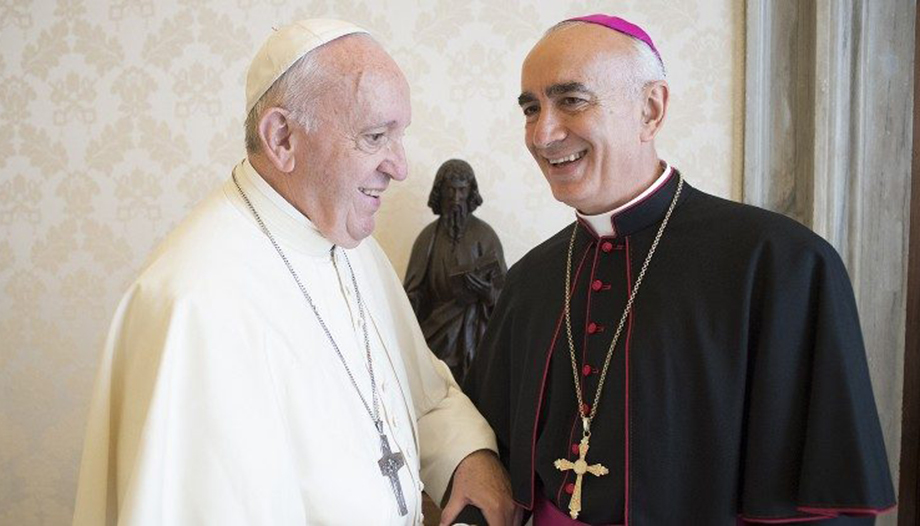"A reform in continuity". Monsignor Antonio Staglianò carefully chooses these words to begin describing the profound changes that the Pope, with the letter in the form of a motu proprio Ad theologiam promovendamhas introduced in the bylaws of the Pontifical Academy of Theology over which he presides. A revolution of no small importance that even represents a paradigm shift for the Academy founded by Clement XI in 1718.
In a long conversation with Omnes, Staglianò points out that, normally, when the expression "paradigmatic revolution" is used in science, reference is made to that work by Thomas Samuel Kuhn titled The structure of scientific revolutionsin which the American philosopher explains how in science there are upheavals that generate new methods and a new way of proceeding in science itself.
"We borrow from Kuhn the idea of the paradigm, but we cannot but read it within the Church. After all, theology is an ecclesial form, not just science, which must be situated within Tradition," says Staglianò. The revolution is there, but within continuity.
New theology
The construction of a new idea of theology is the greatest novelty of this revolution. Monsignor Staglianò calls it Wisdom TheologyWe call it so following the Holy Father's instructions. In essence, theological science must be conceived more and more as wisdom".
And if all this is new, he adds, "it is so in reference to the context that has been created from 300 years ago until today, that is, since the Enlightenment and the birth of science, knowledge has been conceived more and more in intellectualist, rationalist terms".
This prejudice that the Enlightenment has imposed on culture, according to Staglianò, "is a prejudice that must be overturned, because if knowledge is the fruit of science, then Christian Revelation cannot be considered knowledge, but ends up being branded as opinion: because everything that is not knowledge, the enlightened prejudice places it in the realm of opinion, of non-truth".
A new language
Here, then, we are faced with an awkward situation, Staglianò admits: "On the one hand, by believing in the Revelation of God in Jesus Christ we come to really know God, but this knowledge - which would be the Truth of God - according to the Enlightenment approach would not have the character of truth."
Therefore, to maintain that theology is wisdom means, above all, to ask that "that indication be applied also to theology which Benedict XVI did to all sciences and to all knowledge: to extend the limits of reason in a sapiential sense. This means that "reason must be measured against all human experience".
Knowledge comes from Revelation, from the Gospel. And the real novelty consists in "recovering, in a new language, what theology has always been before becoming a science: namely, wisdom," Staglianò explains.
Theology without borders
To a theology that rediscovers itself as wisdom, no limits or boundaries can be set. "And this," says Staglianò, "for a missionary reason that underlies the Christian faith itself. Faith corresponds to the Gospel, and Jesus is the Son of God in human flesh, and therefore is the salvation and redemption that God has willed for all."
Hence a logical consequence that the President of the Pontifical Academy of Theology summarizes as follows: "If the Gospel is meant for everyone, then everyone can hear the Gospel: I am referring also to those who belong to other religions or even to those who do not believe.
Everyone needs to be saved by Jesus Christ and here, says Staglianò, "comes the question of the service that sapiential theology can render to the evangelization of the Catholic Church itself, which, perhaps, after more than 2000 years, needs to be reinvigorated. The great risk is that it has lost the true face of God".
New instruments
Entering into dialogue with these diverse and distant worlds is one of the new and important priorities of the Pontifical Academy of Theology. To this end, the new statutes provide for new structures.
First of all, Staglianò explains, "a Council of Higher Studies called to interact with the spheres of higher culture, including the institutional sphere. And then we thought of theological cenacles with which to relate sapiential theology to the people in order to speak of God through the themes of life, the suffering flesh, political and social issues."
To do all this, Staglianò concludes, "we will be helped by some figures created thanks to the new statutes: that of the referent interlocutor. These will be persons or groups of persons to whom the Pontifical Academy of Theology will be able to refer in order to open spaces of wide-ranging interlocution."









